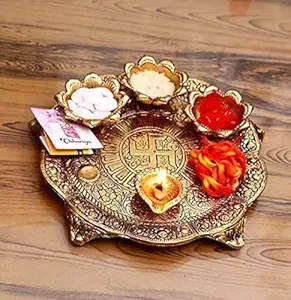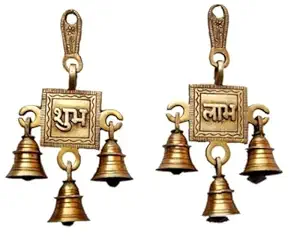હે મારી અંબા છે અલબેલી
હે મારી અંબા છે અલબેલી
રમે ગબરે થઈ ને માંડી ઘેલી
રમે ગબરે થઈ ને માંડી ઘેલી
નવરંગ ચુંદડી માને સોહાય છે
ચૂંદડીમાં તારલા જગમગ થાય
નવરંગ ચુંદડી માને સોહાય છે
ચૂંદડીમાં તારલા જગમગ થાય
ચૂંદડીમાં તારલા જગમગ થાય
હે મારી આરાસુર વાળી અલબેલી
રમે ગબરે થઈ ને માંડી ઘેલી
હે મારી અંબા છે અલબેલી
રમે ગબરે થઈ ને માંડી ઘેલી..
હો આસોની અજવાળી રાતડી રે આવી
સરખી સાહેલી સૌ રમવાને હાલી
હો આસોની અજવાળી રાતડી રે આવી
સરખી સાહેલી સૌ રમવાને હાલી
હો સોનાનો ગરબો શિરે ધરીને
સોનાનો ગરબો શિરે ધરીને
ચાચર ચોકે માં ગરબે રમે છે
ચાચર ચોકે માં ગરબે રમે છે
હે મારી આરાસુર વાળી અલબેલી
રમે ગબરે થઈ ને માંડી ઘેલી
હે મારી અંબા છે અલબેલી
રમે ગબરે થઈ ને માંડી ઘેલી..
Overview of "He Mari Amba Che Albeli"
Title & Meaning
'He Mari Amba Che Albeli' is a traditional Gujarati Garba song celebrating devotion to Goddess Amba, performed during Navratri and festive gatherings.
Artist & Recording Details
Performed by regional folk artists across Gujarat, recorded both in live and studio settings for Navratri celebrations.
Genre & Occasion
Devotional folk Garba, sung during Navratri, honoring Goddess Amba and promoting cultural unity through music and dance.
Language & Dialect
Lyrics are in Gujarati, featuring local dialects and traditional expressions associated with Navratri festivities.
Popularity & Versions
Well-loved in both urban and rural communities, with multiple live and recorded versions performed during Navratri Garba nights.
Lyrics Structure & Themes
Devotional Invocation
The lyrics begin with a prayer invoking Goddess Amba, setting a spiritually uplifting tone for Garba performances.
Repetitive Chorus
Chorus lines are repeated to maintain rhythm and encourage participation among dancers and devotees.
Imagery & Symbolism
Lyrics include imagery of festivity, divine presence, and colors, highlighting cultural and devotional significance.
Community & Togetherness
Focuses on unity and collective celebration, bringing communities together during Navratri.
Emotional Resonance
Evokes joy, devotion, and excitement, creating a lively and spiritually engaging atmosphere.
Musical & Performance Elements
Instrumentation & Rhythm
Uses traditional instruments like dhol, dholak, and manjira to drive the energetic rhythm of the Garba.
Tempo & Dynamics
Starts at a steady pace, gradually increasing tempo to energize dancers and sustain festive enthusiasm.
Live vs Studio Renditions
Live performances include crowd participation and extended verses, while studio versions are polished and concise.
Dance Cues & Movements
Lyrics guide circular Garba formations, claps, spins, and footwork for synchronized performances.
Audience Participation
Encourages all attendees to sing along and dance, making Garba inclusive and enjoyable for everyone.
Festival & Cultural Significance
Navratri Connection
Central to Navratri celebrations, this Garba invokes blessings of Goddess Amba and enhances the festive spirit.
Spiritual Meaning
Represents devotion and surrender to Goddess Amba, seeking protection, prosperity, and spiritual fulfillment.
Cultural Heritage
Preserves the essence of Gujarati folk music and dance, passing traditions through generations.
Community Bonding
Fosters social harmony as people unite through singing, dancing, and celebrating Navratri together.
Joyful Celebration
Creates happiness and cultural pride, bringing devotees together for a vibrant and spirited festival experience.
How to Use & Share
Translations & Transliteration
Providing translations helps non-Gujarati speakers understand the meaning and actively participate in Garba.
Audio / Video Embeds
Embed live performances and audio tracks for an immersive experience of the Garba song.
Printable Lyrics & PDFs
Offer downloadable and printable lyrics for personal use, practice, or community Navratri events.
Performance & Dance Tips
Provide Garba steps, costume suggestions, and timing tips to help users perform the dance with joy and accuracy.
SEO & Social Media
Optimize content with keywords like He Mari Amba Che Albeli, Gujarati Garba, Navratri; add social sharing options to increase traffic.
'He Mari Amba Che Albeli' is a traditional Gujarati Garba song celebrating devotion to Goddess Amba, performed during Navratri and festive gatherings.
Performed by regional folk artists across Gujarat, recorded both in live and studio settings for Navratri celebrations.
Devotional folk Garba, sung during Navratri, honoring Goddess Amba and promoting cultural unity through music and dance.
Lyrics are in Gujarati, featuring local dialects and traditional expressions associated with Navratri festivities.
Well-loved in both urban and rural communities, with multiple live and recorded versions performed during Navratri Garba nights.
The lyrics begin with a prayer invoking Goddess Amba, setting a spiritually uplifting tone for Garba performances.
Chorus lines are repeated to maintain rhythm and encourage participation among dancers and devotees.
Lyrics include imagery of festivity, divine presence, and colors, highlighting cultural and devotional significance.
Focuses on unity and collective celebration, bringing communities together during Navratri.
Evokes joy, devotion, and excitement, creating a lively and spiritually engaging atmosphere.
Uses traditional instruments like dhol, dholak, and manjira to drive the energetic rhythm of the Garba.
Starts at a steady pace, gradually increasing tempo to energize dancers and sustain festive enthusiasm.
Live performances include crowd participation and extended verses, while studio versions are polished and concise.
Lyrics guide circular Garba formations, claps, spins, and footwork for synchronized performances.
Encourages all attendees to sing along and dance, making Garba inclusive and enjoyable for everyone.
Central to Navratri celebrations, this Garba invokes blessings of Goddess Amba and enhances the festive spirit.
Represents devotion and surrender to Goddess Amba, seeking protection, prosperity, and spiritual fulfillment.
Preserves the essence of Gujarati folk music and dance, passing traditions through generations.
Fosters social harmony as people unite through singing, dancing, and celebrating Navratri together.
Creates happiness and cultural pride, bringing devotees together for a vibrant and spirited festival experience.
Providing translations helps non-Gujarati speakers understand the meaning and actively participate in Garba.
Embed live performances and audio tracks for an immersive experience of the Garba song.
Offer downloadable and printable lyrics for personal use, practice, or community Navratri events.
Provide Garba steps, costume suggestions, and timing tips to help users perform the dance with joy and accuracy.
Optimize content with keywords like He Mari Amba Che Albeli, Gujarati Garba, Navratri; add social sharing options to increase traffic.


